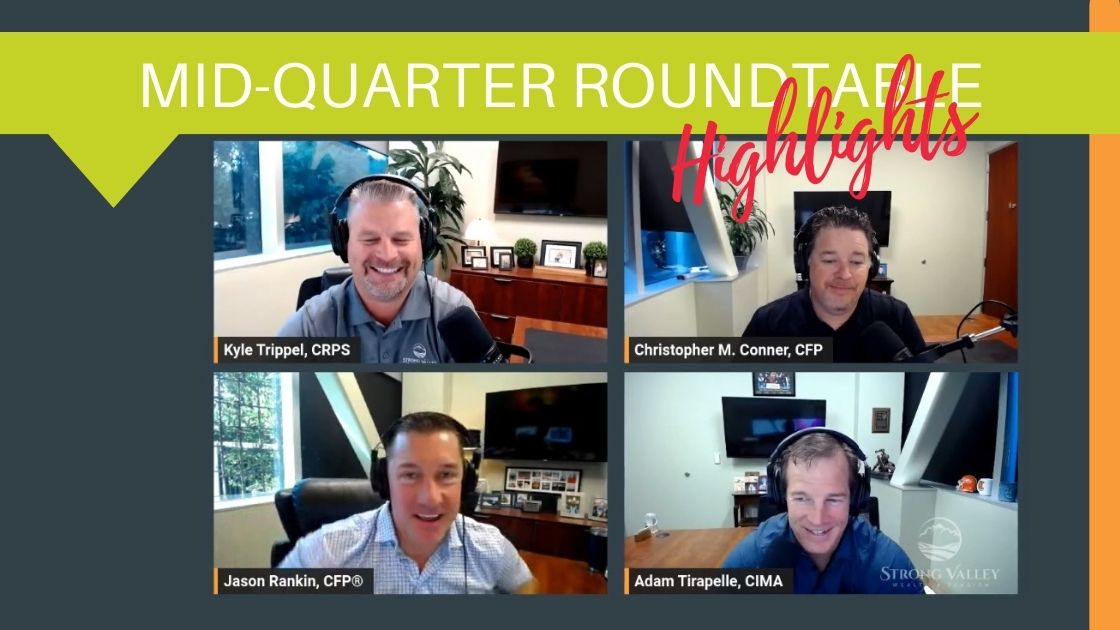You are now leaving the Strong Valley Wealth & Pension, LLC ("Strong Valley") website. By clicking on the "Schwab Alliance Access" link below you will be entering the Charles Schwab & Co., Inc. (“Schwab”) Website. Schwab is a registered broker-dealer, and is not affiliated with Strong Valley or any advisor(s) whose name(s) appears on this Website. Strong Valley is/are independently owned and operated. Schwab neither endorses nor recommends Strong Valley. Regardless of any referral or recommendation, Schwab does not endorse or recommend the investment strategy of any advisor. Schwab has agreements with Strong Valley under which Schwab provides Strong Valley with services related to your account. Schwab does not review the Strong Valley website(s), and makes no representation regarding the content of the Website(s). The information contained in the Strong Valley website should not be considered to be either a recommendation by Schwab or a solicitation of any offer to purchase or sell any securities.

When it comes to investing, each person has a different tolerance for risk. A friend or coworker may not give a second thought to an investment that leaves you feeling uneasy. Do you know what factors to consider when coming up with the level of risk that best suits you?

When it comes to investing, everyone has a different risk tolerance. A co-worker or neighbor may not give a second thought to an investment that leaves you with a sinking feeling in the pit of your stomach. But risk tolerance isn’t a matter of “good or bad.” Whether you thrive on risks or avoid them at all costs, the important point is to know the level of risk that best suits you.
Investing typically involves a tradeoff between risk and return. Returns come in the form of interest or capital appreciation. Generally, the riskier an investment, the greater the potential return. This is because the market theoretically “rewards” investors for assuming risk, which is the potential for loss. Investors in pursuit of higher returns must be willing to assume the likelihood of loss associated with more volatile investments.
But not everyone wants to take a higher risk in the hope of achieving a larger return. Some investors are perfectly satisfied receiving smaller returns on investments that carry lower levels of risk. The key is to find the right level of risk that potentially allows the desired return, while keeping away from that uneasy feeling.
What factors affect risk tolerance? There are many, a person’s age, stage in life, personal temperament, financial goals, and time horizon each play a role. Here is a brief discussion of these points:
Age and Stage in Life. Generally, the younger someone is, the more risk they can assume. Singles may also be able to afford more risk than a married couple with children and more responsibilities. Additionally, someone who is just entering the work world may be more comfortable with higher-risk investments than someone that is retired or approaching retirement.
Personal Temperament. At every stage of investing, it is important to evaluate how much of an impact losing invested funds would have on peace of mind. Some people find roller coaster rides thrilling, but a wild market ride can be nerve-wracking. The stock market, for instance, has historically risen over the long term, yet it has experienced wide short-term fluctuations. Consider the stock market recession from 1973 to 1975, it dropped by 46%!
Financial Goals and Planning Horizon. It is also important to think through the number of years in the time horizon that are available to meet financial goals. In general, the earlier people start to save, the more risk they can afford to assume. However, investors always need to be comfortable with the amount of risk, and that comfort varies from person to person. And remember, the amount of risk that someone is willing to carry impacts the possible return they could expect to achieve.
Every individual needs to know his or her “comfort level” for risk. That is important when making investment decisions. A financial professional can help with proper planning and development of a portfolio that balances risk tolerance with financial goals. Since risk tolerance changes with time and circumstances, another good practice is to reassess investment strategies with a financial professional as life situations change.



